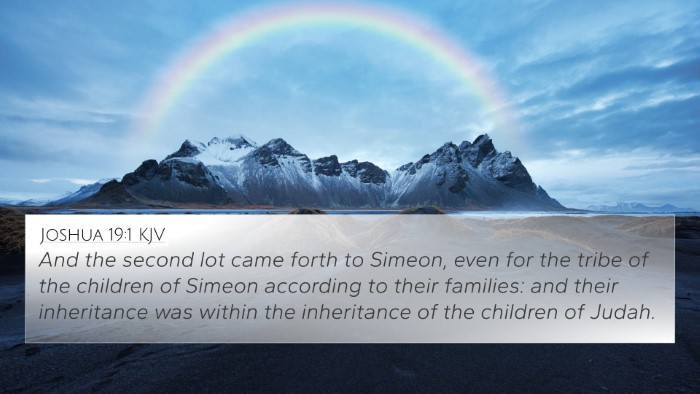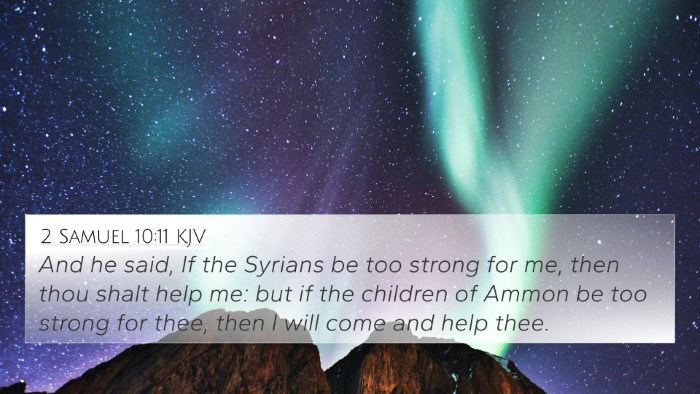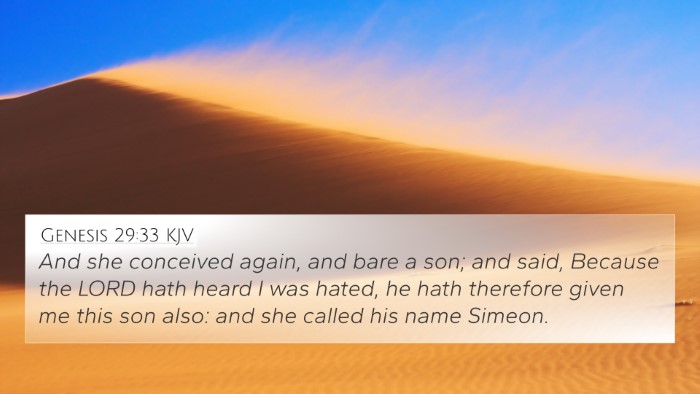Understanding Judges 1:3
Judges 1:3 captures a significant moment in Israelite history during the era of the Judges. This verse reads:
"And Judah said unto Simeon his brother, Come up with me into my lot, that we may fight against the Canaanites; and I likewise will go with thee into thy lot. And Simeon went with him."
Verse Meaning and Context
This verse is pivotal in understanding the collaboration between the tribes of Judah and Simeon. The call to fight against the Canaanites illustrates the unity and support necessary among the tribes as they sought to possess their allotted lands after the death of Joshua.
Commentary Insights
-
Matthew Henry: Henry emphasizes the significance of mutual assistance in spiritual endeavors. Judah, representing strength, seeks the aid of Simeon to collectively combat their adversaries. This symbolizes the importance of partnership in undertaking challenges, particularly in spiritual contexts where believers are encouraged to support one another.
-
Albert Barnes: Barnes notes the historical context of this alliance, illustrating it as a demonstration of faith in God's promises. The request made by Judah shows a proactive approach to fulfilling divine commands concerning the conquest of Canaan, highlighting the necessity of action alongside faith.
-
Adam Clarke: Clarke reflects on the implications of tribal relationships in Israel, seeing this interaction as a model for solidarity among God's people. He points out that the tribes' cooperation exemplifies how the Body of Christ (the church) should function, with diverse members unifying for a common goal.
Cross-References
To deepen your understanding of Judges 1:3, consider these relevant Bible cross-references:
- Joshua 14:1-3: Discusses the allotment of land among the tribes, providing context to their territorial challenges.
- Judges 1:1: The inquiry to the Lord about which tribe should go up first against the Canaanites.
- 1 Chronicles 4:27: Highlights the genealogy of the Simeonites, connecting them to the broader narrative of Israel’s tribes.
- Genesis 49:8-10: Jacob's blessing on Judah, foretelling leadership and strength in battle.
- Exodus 17:8-13: An account of Israel's battles, relating the necessity of mutual support in spiritual warfare.
- Ecclesiastes 4:9-12: Affirms the concept that "two are better than one," paralleling the collaboration seen in Judges.
- Matthew 18:19-20: New Testament teaching on the power of agreement in prayer, echoing the idea of unity in purpose.
Thematic Connections
This verse illustrates themes of unity, cooperation, and shared objectives among God’s people.
- Unity in Purpose: Judah's invitation to Simeon reflects the idea of coming together to face common challenges.
- Faith and Action: This calls believers to not only trust in God’s promises but also to take active steps in faith.
- Community Support: The relationship shown between the tribes serves as an example of how communities of faith should support each other.
Conclusion
Judges 1:3 serves as a powerful reminder of the importance of cooperation, faith, and mutual support among believers.
The cross-references enrich our understanding by linking this verse to broader biblical themes and narratives that emphasize the necessity of community in pursuing God’s will.
Further Exploration
For those interested in exploring how biblical texts connect, employing tools for Bible cross-referencing can enhance scriptural study. A comprehensive understanding of links between verses, as exemplified in Judges 1:3, contributes to a deeper grasp of the teachings and themes within Scripture.






